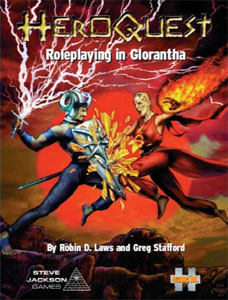FrogReaver
The most respectful and polite poster ever
The whole point of your preferred kind of play is to put a bunch of stuff out there for the PCs to discover and interact with. Now it's true you aren't curating specifically which thing they encounter, but you did curate the world and all the things in it that they may encounter. You filled up the world with enough of such stuff such that they would encounter some interesting things pretty much no matter what they did. So while you aren't putting anything in specific in the PCs path, you are setting up the dominos so that one of the many specific things you thought would be interesting for the players will get encountered, even though you aren't directing to any specific one.You're creating the straw man of perfect simulation in an attempt to invalidate my playstyle. My GMing goals are just that: goals. I strive to avoid forcing anything on the players outside of setting logic or their choices. If there is a "plot hook" (I dislike that narrative term, since my setting isn't a story with plot), it is either found in a specific place (where it remains even if the players don't go there), or it is potentially available in an area via a random roll. I don't put things in the PCs path because I want them to encounter them no matter what.
In terms of framing I think a deep assessment reveals that provided the PCs are in the right area then they'll encounter exactly what you wanted them to no matter what.

